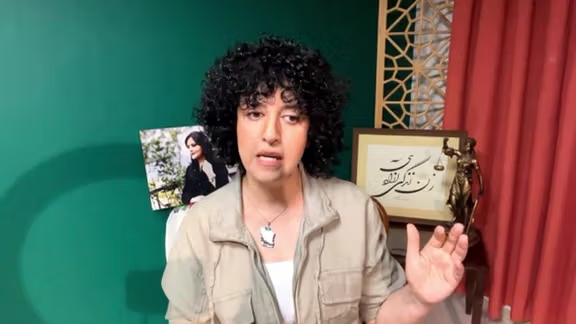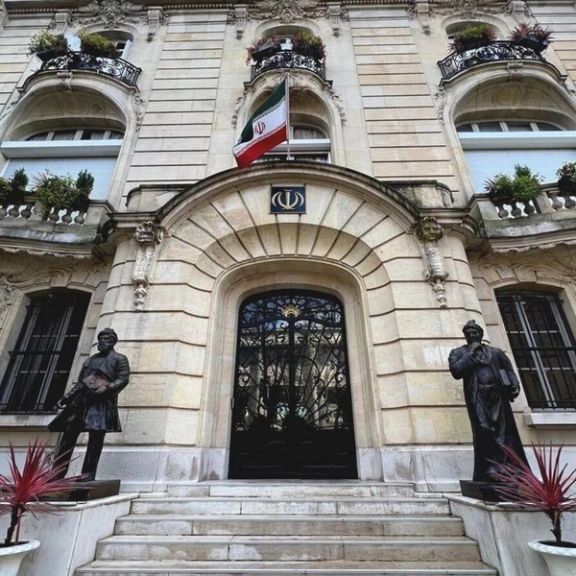The organization's inaugural 120-page report said Iran has maintained a “structured system of infiltration” in France for decades through its diplomats and cultural institutions.
The report compiled by journalists, historians and former intelligence officials, said Tehran had maintained a “structured system of infiltration” in France for decades through diplomats and cultural institutions.
France2050 is led by Gilles Platret, a former mayor and vice president of a center right party. The report's editorial directors, Emmanuel Razavi and Jean-Marie Montali, are authors of books on Iranian influence abroad.
The document was submitted to the Interior Ministry, the Senate and the National Assembly to inform policymakers about foreign influence operations in France, according to its authors.
“In France, the number two of the Iranian embassy, Ali Reza Khalili, was responsible for establishing an influence network: recruiting and directing ‘agents,’ whether they were aware of being manipulated or not,” the report said.
It described Khalili as chief of staff to the Iranian ambassador and president of the Franco-Iranian Center, an association created in 2016 that regularly hosted conferences, cultural events and training sessions.
These activities, the authors wrote, enabled Tehran to “identify and recruit potential interlocutors in academia, civil society and the media.”
Embassy accused of coordinating propaganda
The report called the Iranian embassy in Paris “the European anchor of the Revolutionary Guards’ influence operations.”
Citing European counter-espionage sources, it said the mission served simultaneously as “a cultural center, a propaganda unit and a coordination office for the surveillance of the diaspora and the repression of opponents abroad.”
Several embassy staff members officially registered as diplomats were identified by European services as belonging to Iran’s Ministry of Intelligence (MOIS) or the Quds Force, according to the document.
The embassy allegedly supervised cultural and religious institutions such as the Centre Culturel Islamique d’Iran in Paris, which the report called “a discreet but effective relay for Tehran’s propaganda.”
The France2050 authors also cited links between the embassy and regional Shiite associations in Lyon and Villeurbanne, describing joint events attended by Iranian diplomats “often without public mention of their participation.”
Recruitment in universities and civil society
According to the document, the embassy and the Franco-Iranian Center offered scholarships, internships and trips to Iran to “students or researchers demonstrating open-mindedness toward Iranian culture,” which it characterised as a form of recruitment for influence operations.
Targets included “young intellectuals, journalists in training, or NGO activists susceptible to anti-Western or anti-imperialist rhetoric,” the report said.
The embassy also allegedly directed a digital influence campaign using social-media accounts tied to Iranian state outlets such as Press TV, Al-Alam and Hispan TV.
Cyber-monitoring referenced in the report found recurring links between these French-language networks and the embassy’s communications unit, with some account administrators participating in events run by Ali Reza Khalili’s center.
The campaigns, the report added, aimed to “create ideological confusion, erode trust in democratic institutions and normalize the Iranian regime’s positions in the French political and media landscape.”
It warned that the absence of an EU terrorist designation for the Revolutionary Guards allowed operatives “to travel, fundraise and coordinate freely across Schengen countries.”






